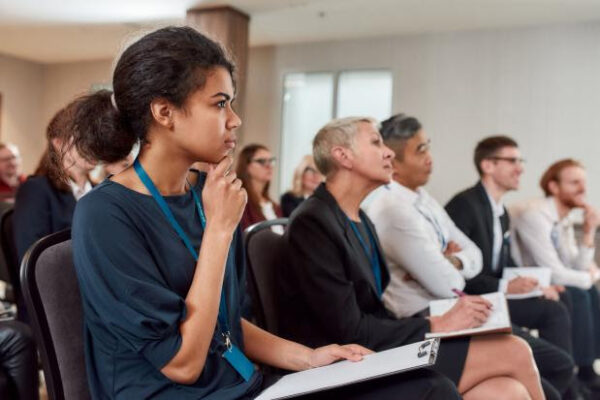Greater collaboration needed to strengthen our diverse societies and counter hatred, OSCE leaders say
VIENNA, 26 JUNE 2023 – Closer co-operation and an innovative approach are needed by governments and civil society to build respect and trust in the diversity of our societies and combat intolerance and hatred, OSCE leaders said as a two-day conference began today.
The event brings together representatives of OSCE states, international organizations, and civil society. Participants will explore the role of civil society organizations in promoting and protecting tolerance and combating discrimination, as well as assessing the effectiveness of their efforts and discussing the best means of providing them with the space and support they need to carry out their work.
“Experience in the OSCE region and beyond has shown that civil society actors are indispensable for addressing all forms of intolerance and discrimination,” said Ambassador Igor Djundev, Chairperson of the OSCE Permanent Council. “Given the role it plays in countering various forms of unequal treatment and prejudice, it is important that state authorities ensure that civil society has access to resources and an enabling environment.”
Participants will focus on three interconnected themes. The first highlights civil society strategies to help young people learn about respect for diversity and addressing intolerance and hatred in the online space, while the next explores the vital contribution of civil society to counter intolerance and discrimination against communities who are often the target of hatred. The final theme of the conference is dedicated to the need for collaboration and sustainable civil society coalitions and networks, including interfaith dialogue and partnerships.
States do not only have primary responsibility for protecting people from all forms of intolerance and discrimination, but also for helping to ensure that their rights are respected in practice. With numerous people from marginalized communities remaining displaced as a result of the war in Ukraine, it is crucial that governments take concrete steps to support their longer-term integration and social inclusion.
The role of civil society remains essential in these efforts, and is all the more important in countering hatred against communities such as Roma and Sinti or migrants and refugees, who are among the most vulnerable in the OSCE region. However, many civil society organizations are currently operating in the face of serious challenges. These come in many different forms, from physical attacks through politically motivated lawsuits or arrests to legal and administrative restrictions on funding. By removing such barriers and building partnerships with civil society, governments can make their own activities to combat intolerance more effective.
“Diverse and inclusive societies are better able to learn from everyone living in them, and at the same time are more resilient during periods of crisis,” said ODIHR Director Matteo Mecacci. “Working together, we can overcome intolerance to build strong societies in which each individual can prosper. But this also means that governments must support civil society, and publicly recognize its work as part of the solution.”
As our lives have increasingly moved online together with advances in technology, so too have intolerance and hatred. Participants will examine how best to equip young people with the awareness and skills needed to safely navigate the digital space and the vital role of education to increase awareness and respect for diversity. Tools and resources to help countries build more inclusive societies can be found on ODIHR’s website.
All OSCE countries have committed to combating discrimination, intolerance and hate as an integral aspect of the OSCE concept of comprehensive security.
Supplementary Human Dimension Meetings are a platform for OSCE states and institutions, as well as international organizations and civil society, to exchange views and good practices in order to find common solutions for the challenges facing societies across the region. Today’s discussion is the third and final SHDM of 2023.
